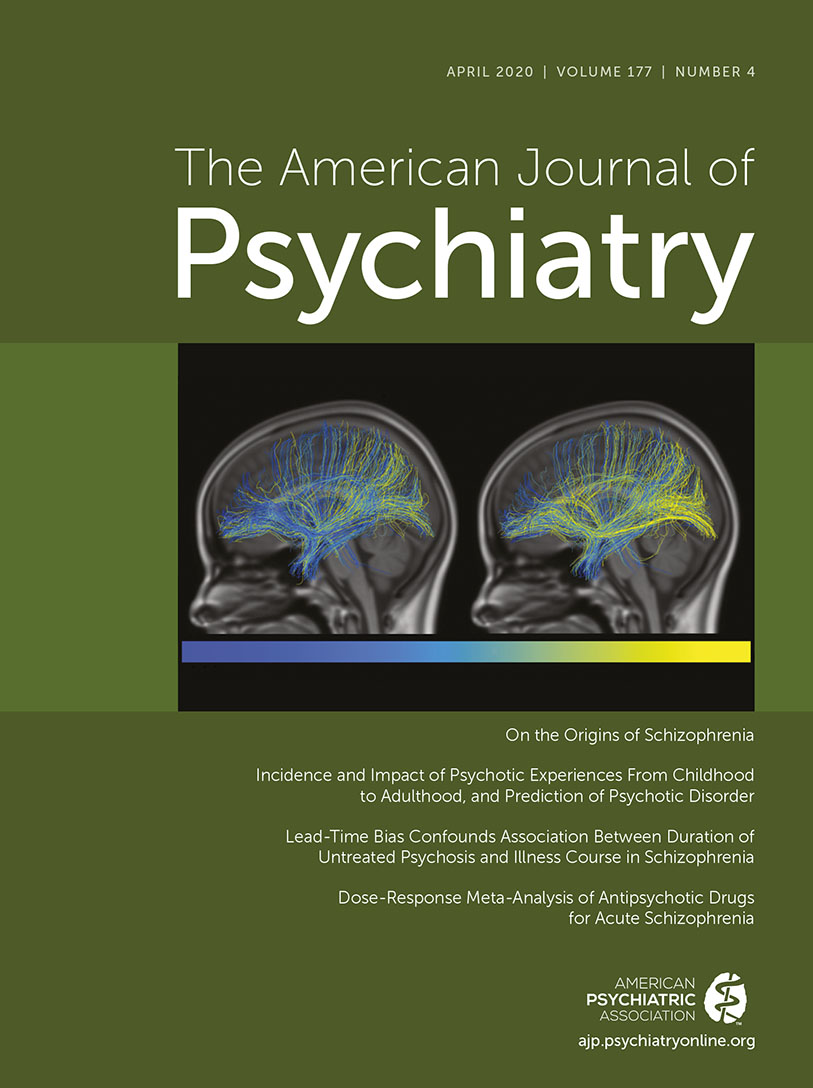Further Analysis of Cognitive Change in Schizophrenia and Other Psychoses in the Decade Following the First Episode: Response to Panayiotou et al.
to the editor: Panayiotou et al. raise important points with regard to studies on the course of cognitive impairment in schizophrenia that we think are important to address. They argue that, based on the previous literature, one would hypothesize that increasing cognitive deficits in schizophrenia patients are due to developmental lags (i.e., slower growth relative to healthy comparison subjects) rather than deterioration (i.e., absolute decline from previous level of performance). Indeed, we have previously shown that developmental lags manifest during childhood and adolescence in individuals who go on to develop schizophrenia (1, 2). In these studies of the course of cognitive impairment in psychotic disorders in early life, scores on cognitive tests increased over time in both case and control subjects, but less so in case subjects (i.e., “cognitive lag”). In the present study, on the other hand, control subjects did not show an increase in scores on measures of IQ, verbal knowledge, and verbal memory between baseline and follow-up, and case subjects actually showed a decrease (i.e., “cognitive deterioration”). These findings strongly suggest absolute cognitive decline from previous level of performance in these domains rather than slower growth relative to healthy control subjects. This cognitive deterioration is also evident in the analysis of raw scores.
Similarly, Panayiotou et al. argue that follow-up, rather than baseline, education levels should be considered as they may better index skill development over the life course. However, we did not find evidence for acquisition of skills in either control or case subjects. Moreover, disentangling the relationship between cognition and education over time remains very challenging.
Panayiotou et al. also suggest that schizophrenia patients with preserved rather than impaired cognitive abilities early in the illness may show differences in their cognitive trajectories. We agree that a comparison of schizophrenia patients with lower and higher IQ may provide interesting and useful insights into cognitive trajectories. However, based on Weickert et al. (3), we hypothesized that the largest cognitive decline would be seen in patients with (relatively) preserved cognitive functioning at baseline. To test this hypothesis, we repeated our analyses (4) after classifying schizophrenia patients into two subgroups: those with a baseline IQ above, relative to those with a baseline IQ below, the group median of 84. These analyses revealed that schizophrenia patients with a baseline IQ above the median showed greater and more widespread cognitive decline than those with a baseline IQ below the median, with the latter group showing no or only minimal cognitive decline. Schizophrenia patients with a baseline IQ above the median showed evidence for decline in processing speed, but this measure did not reach statistical significance (effect size=−0.24, 95% CI=−0.52 to 0.04, p=0.089). However, these results should be interpreted with caution because of the small sample sizes available for subgroup analyses, as well as the potentially limited sensitivity to detect cognitive change at the lower end of performance on traditional neuropsychological tests (i.e., “floor effects”). Nevertheless, these analyses highlight the importance of stratified analyses in understanding disease course, as well as the potential utility of identifying clinically relevant subgroups.
1 : Static and dynamic cognitive deficits in childhood preceding adult schizophrenia: a 30-year study. Am J Psychiatry 2010; 167:160–169Link, Google Scholar
2 : Course of cognitive development from infancy to early adulthood in the psychosis spectrum. JAMA Psychiatry 2018; 75:270–279Crossref, Medline, Google Scholar
3 : Cognitive impairments in patients with schizophrenia displaying preserved and compromised intellect. Arch Gen Psychiatry 2000; 57:907–913Crossref, Medline, Google Scholar
4 : Cognitive change in schizophrenia and other psychoses in the decade following the first episode. Am J Psychiatry 2019; 176:811–819Link, Google Scholar



